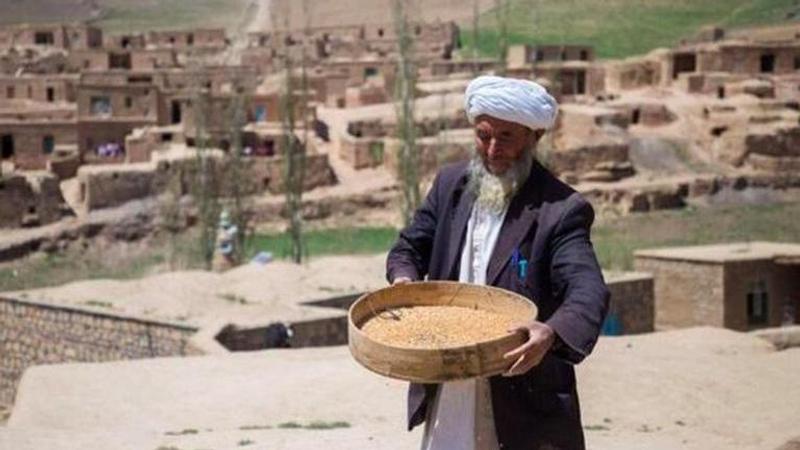Published 07:09 IST, April 22nd 2021
Afghanistan: 13 million grappling with food shortages as drought, COVID-19 crisis worsens
Afghan Red Crescent Society Acting President, Dr. Mobarez said: ‘We are deeply concerned about worsening and severe food and water shortages in Afghanistan.

There was a need for urgent collective action to tackle the worsening food crisis in Afghanistan as one-third of the country is now facing a critical shortage of food due to droughts and economic woes, The International Federation of Red Cross and Red Crescent Societies (IFRC) said in a report published on Wednesday. The drought and food crisis in the county is one of the worst witnessed in recent decades, as nearly 13.1 million people grappled with lack of access to food, the agency said, citing the latest food insecurity analysis. The food crisis has rendered the population helpless with mounting hardships both social and economic as they struggled with the COVID-19 pandemic and aftermath of the never-ending armed conflicts that have ravaged the country.
In a statement, the Afghan Red Crescent Society Acting President, Dr. Nilab Mobarez said: ‘We are deeply concerned about worsening and severe water shortages in many areas, depleted food crops and crippled economic activity, such as decimated local markets and basic incomes.’ Furthermore, he added, “In the past month, Afghan Red Crescent volunteers and response teams have urgently ramped up relief, including food and cash assistance for thousands of drought-affected families across the parched provinces of Badghis, Baghlan, and Faryab.”
[Afghan red Crescent helps families amid food shortage. Credit: Twitter/@ARCSAfghanistan]
[Credit: Twitter/@ARCSAfghanistan]
7.5 million Swiss francs funding needed
An emergency appeal was rolled out by the IFRC that sought immediate funding of approximately 7.5 million Swiss francs to the Afghan Red Crescent, which will deliver the cash grants to the citizens to buy food supplies. This would restore livelihoods and crops for at least 210,000 impacted people that are suffering from food shortages. According to IFRC, there are at least ten provinces that have been worst affected by food insecurity and drought in recent years, with crop production dipping up to 27 percent in 2021, according to the estimate by the Afghanistan Inter-Cluster Coordination Team.
FRC’s Head of Delegation for Afghanistan, Necephor Mghendi, said in a statement, “This is one of the worst ever droughts in Afghanistan and millions of people are barely surviving. People are walking long distances, as drinking water is running out and crops are failing.”
He added, “We have grave fears for more than 18 million people who will need humanitarian support in Afghanistan this year due to this drought-driven food crisis piled on top of the debilitating social and economic impacts of COVID-19 and the long-running conflict.”
Mghendi appealed for the international partners to take urgent action to help Afghan people in the hour of extreme need, as millions in Afghanistan longed for food, water, and cash assistance to survive. “We are revitalizing drought-resistant crops and diminished livestock while supporting income generation for women and other population groups most at risk,” FRC’s Head of Delegation for Afghanistan said.
Updated 10:36 IST, April 22nd 2021






